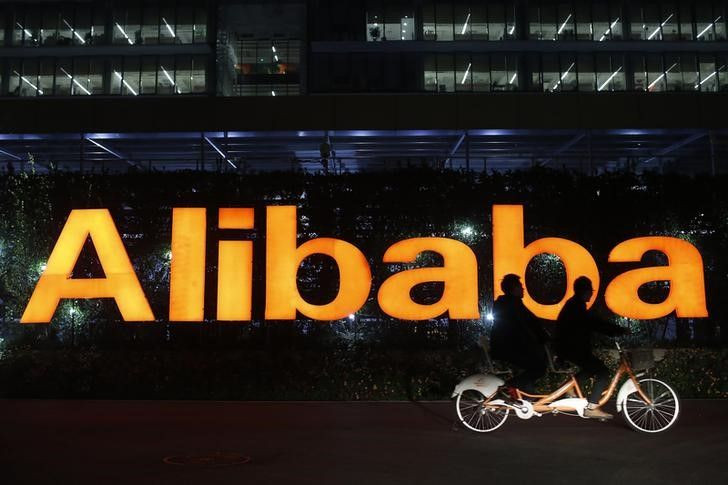Alibaba Launches Netflix–Like Service TBO, But Faces Battle To Persuade China’s Consumers To Pay To Watch

SHANGHAI -- Chinese e-commerce giant Alibaba is set to launch its online video-streaming service, in another sign of the company's broadening ambitions, following the success of its initial public offer (IPO) in New York last year. But experts say it will be joining an already crowded market -- where few customers are used to paying for content.
Patrick Liu, head of digital entertainment at Alibaba, said that the company was on a mission to “redefine home entertainment," and “become like HBO... [or] Netflix in the United States,” according to the China Daily.
The name of the new service certainly seems designed to emphasize this point -- it will be known as TBO or Tmall Box Office, a reference to Alibaba’s online business-to-consumer platform, Tmall.com.
Liu said the service would provide a mixture of bought-in foreign and local programming, and in-house productions. Ten percent would be free to view, but the remainder would require subscription or per-view payments, the report said.
Alibaba already offers some TV content in China to viewers who subscribe to its digital TV box. However in entering the world of online streaming it may face some tough challenges.
Video-streaming is hugely popular in China, as an alternative to the country’s state-dominated, and heavily censored, TV networks. But the field is already dominated by several powerful major players -- including market leader Youku Tudou, search engine giant Baidu’s iQiyi service, and others, including Sohu and LeTV. All these companies have invested large sums on purchasing content, including popular TV shows from the U.S. and other countries.
Equally signficantly, Chinese viewers are used to getting most of their online content more or less for free. Some providers charge a small fee to enable viewers to skip ads, but the pay-per-view or subscription model is still in its infancy in China, with platforms making most of their money from advertising (though even today big players like Youku Tudou are still making a net loss.)
“There’s a lot of competition in the video streaming area -- so it’s tough to get people to pay. Every single site is struggling to add paid subscribers,” said Stephen Millward, chief editor of technology website TechInAsia. “For example, Youku does have a paid option – but that's like single million digits, compared to their total of hundreds of millions of active users," he told International Business Times. "And these companies have to invest so much in acquiring content licenses, and the cost of the bandwidth.”
Alibaba has, however, shaken up several sectors of China's economy in the past -- it has become a major force in the field of online finance and payments, for example -- and it now appears to believe it has the resources and vision to try to do the same in the online TV sphere.
The company already has a 16 percent stake in Youku Tudou -- though Liu did not explain how this would fit with the new service. It has also invested in smartphones, and, like a growing number of companies in China, now seems to be seeking to offer a complete package of hardware and content.
But like its rivals, Alibaba may also face challenges from China’s regulatory environment. Online video platforms have grown popular in recent years because most of their programming was not subject to the strict rules governing content on China’s terrestrial TV channels, which required pre-approval for the screening of foreign TV shows, and limited the amount of airtime given to reality shows and even costume dramas.
Online video platforms have therefore scored huge successes with shows like Sherlock, House of Cards and The Big Bang Theory. But the authorities have recently tightened the rules -- requiring foreign shows to get approval before they can be shown online. The Big Bang Theory was one of several shows abruptly pulled from online sites last year, as the clampdown began.
Still, Chinese video platforms and production companies have responded by investing more money into funding their own productions abroad to fill the gap. And Alibaba’s foray into this field may be helped by the fact that it already has investments in movie financing and TV production, and last week announced plans to cooperate with Hong Kong television station TVB on co-productions of movies and TV series.
TBO is the latest in a series of investments by Alibaba and its chairman Jack Ma since last September's IPO in New York. The group now has interests in everything from online banking and insurance, to connected cars -- and China’s most successful soccer club, Guangzhou Evergrande.
© Copyright IBTimes 2025. All rights reserved.






















